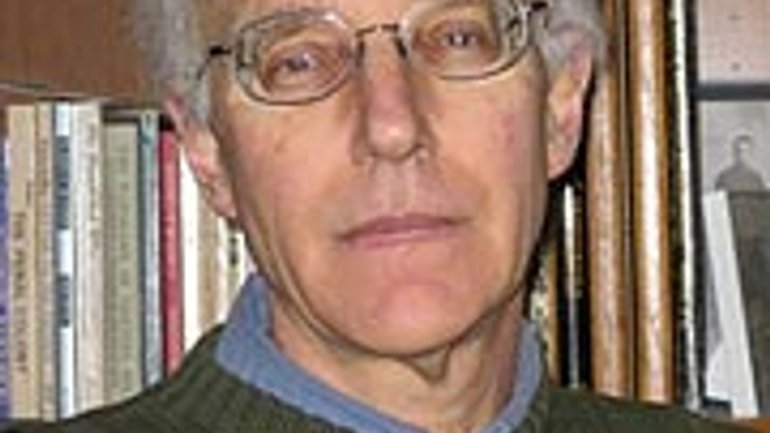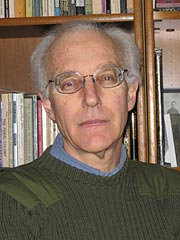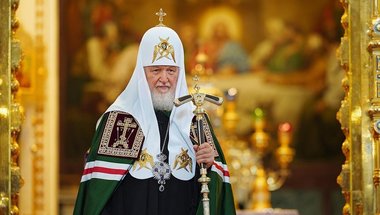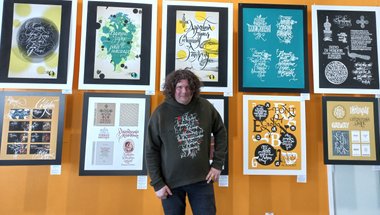Are we in a post-secular age?

 In an interview with Ashton Osmak (From "The Little Catholic University That Could: How Ukrainians are Reshaping the Face of Higher Education," Ukraine Watch, November 17, 2011), Fr. Borys Gudziak, rector of the Ukrainian Catholic University in L’viv (UCU), made the following statement:
In an interview with Ashton Osmak (From "The Little Catholic University That Could: How Ukrainians are Reshaping the Face of Higher Education," Ukraine Watch, November 17, 2011), Fr. Borys Gudziak, rector of the Ukrainian Catholic University in L’viv (UCU), made the following statement:
“Much of modernity is predicated on an antagonistic relationship between the sacred and the secular. We are proposing that we can move beyond that hostility. We are in a post-secular age now where people are yearning for a sense of meaning. It’s a pilgrimage, with few set answers.”
This brief comment contains five important assertions:
(1) We can overcome modernity’s sacred/secular divide.
(2) We live in a post-secular age.
(3) People yearn for meaning.
(4) The search for meaning is a pilgrimage.
(5) This search has few set answers.
Since the interview concerned the students and graduates of UCU, one should understand these statements as referring to that milieu. But do Fr. Gudziak’s observations also apply to Ukrainian society at large? Do they apply to Europe or the West as a whole?
As far as UCU is concerned, one can certainly agree with the last three assertions. No doubt many if not most of the students at this unique university yearn for meaning. And one can likewise agree that their search is a kind of pilgrimage. In this they are much like students the world over. On the other hand, given the dire economic straits in which Ukraine finds itself, one can equally assume that many students in Ukraine do not have the leisure to worry about the pilgrimage towards truth and meaning, but are simply preoccupied with survival. At the same time, many of their colleagues in the Western world are equally uninterested in the search for meaning -- not because they are struggling to survive, but for the opposite reason: affluence and the pursuit of gratification have dulled their appetite for truth.
For those who do search for meaning, notes Fr. Gudziak, there are few ready answers. At first this may seem untrue. After all, modern society offers a broad array of answers: all kinds of religions, philosophies, and life-styles purport to answer the question of the meaning of life. One can find web-sites, support groups, and T-shirts for just about any creed, or the absence of one. But if we are speaking of true answers, indeed there are few. Christianity does not provide an answer to every question; rather, it suggests answers to a few big questions, leaving us to figure out the rest. It tells us who we are and why we are here, but it does not tell us, for example, why God permits evil. Contrary to a popular perception, the Church does not do our thinking for us, but gives us enough understanding to attack the questions that remain unanswered. A university like UCU provides students with the intellectual tools of the Christian tradition that will enable them to find their own answers to the big questions.
The remaining two points go together. But here the matter is far from certain. Fr. Gudziak remarks that we can get past modernity’s sacred/secular divide, since we are in a post-secular (and, by implication, a post-modern) age.
That the modern age (which began in the Renaissance, or at least the Enlightenment) divides the sacred from the secular is beyond dispute. But just how can we move beyond that division? And how can we be sure that our age is post-secular?
First, we must define secularism. If it is the delineation of a sphere of life apart from the Church and religion, then it obviously co-exists with them. Even agnosticism and atheism, typical phenomena of the modern age, only have meaning with reference to religion: the atheist denies God (and therefore unintentionally acknowledges Him), while the agnostic does not know whether or not God exists (and thus admits that there is a God who might exist). This is the kind of secularism that has long existed in the West. But secularism can also be understood as the total elimination of religion from public and even private life, as was attempted in the USSR.
Whether Ukraine is in a post-secular age in either of the above sense depends in part on how we imagine the trajectory of Ukrainian and European history. According to one popular scheme, a Christian Western Ukraine was taken over in World War II by the atheistic Soviet regime, which sought to suppress religion. This compulsory “secularism” forced the Ukrainian Greek-Catholic Church (UGCC) underground. When the regime collapsed, the Church was revived. Hence, Ukraine now lives in a post-secular age. The scheme is similar for Greater or Eastern Ukraine, but in a different time-frame: Ukrainian Orthodoxy was suppressed by the Bolshevik regime in the late 1920s and emerged in the final years of the USSR. In this view, the result has been a new age of religious revival – not a return to a pre-modern age, but a return to the path towards the divine.
There are, however, several problems with this view of Ukrainian history. For one thing, secularization was well under way in both Eastern and Western Ukraine long before the Bolsheviks came to power. Agnosticism and atheism were not unknown among the secular intelligentsia. Ukraine was already following the general European trend of secularization. At the same time, it has been shown that among the peasantry, religion remained strong through at least the first decade of Soviet rule. On the other hand, religious revival in post-Soviet Ukraine has been uneven, with great regional variations in practice and belief.
An alternative scheme would posit a gradual secularizing trend in Ukraine that was interrupted twice: first, by an accelerated secularization under the Soviet regime, and then, when that regime fell, by a temporary religious revival. But once that reaction abated, the trend continued. In this conception, Ukraine is not post-secular, but a part of a secularizing, post-Christian Europe.
And yet it has been argued that Russia, and by extension the USSR, was never secular in the Western sense. Until 1917, there was a single obligatory Orthodox creed and only a small sphere of life apart from it. Under the Bolsheviks, Marxism-Leninism neatly replaced Orthodoxy as a mandatory faith. Thus, neither Russian imperial nor Soviet society ever had a realm independent of official doctrine. In that view, Ukraine is now becoming secular – that is, ideologically pluralistic -- for the first time.
Yet another scheme, well documented in European history, sees alternating sacred and secular ages in a sort of wave pattern. The eighteenth century, for example, saw secularizing trends that were followed by religious awakenings; nineteenth-century naturalism and positivism yielded to a new interest in the spiritual as the twentieth century approached. The military historian John Keegan has remarked, for example, that the British troops on the Somme in 1916 were a more pious lot than their forebears at Waterloo a century earlier. In this perspective, while Ukraine’s post-Soviet religious upsurge may be followed by a period of secularism, that may in turn yield to an era of revived religiosity.
There is, however, another possibility. As was mentioned above, under Soviet rule Ukraine received a concentrated dose of secularism. This may have accelerated its development. If the general European trend is secular, then Ukraine is ahead of its time, for the religious traditions that might have braked that development were weakened and, in some parts of the country, destroyed. And if the modern, secular age is characterized by atheism and agnosticism – both of which can exist only with reference to religion – then the post-modern age is marked by religious indifference. Today we see this phenomenon in the contemporary West, but in much of Ukraine it has long existed as the result of the Stalinist destruction of the Ukrainian church, religion, culture, and rural life. In this view, Ukraine is indeed in a post-secular age – but one where the sacred and the secular are no longer at war not because they have been reconciled, but because the one has been destroyed, while the other is meaningless without it. In such a post-modern age, humanity’s attitude towards religion is not one of challenge or rebellion, but of oblivion.
Which of these schemes is correct? Does it matter? It does matter, because the development of the Ukrainian Catholic University, and the path that its students will follow, must take into account the social-cultural context. If the surrounding society experiences a post-secular revival of spiritual and religious interest, they can lead the way. If it is increasingly secular, they must swim against the current. But if it is post-modern and post-religious, then they will struggle to keep the faith aflame in the night of indifference.









